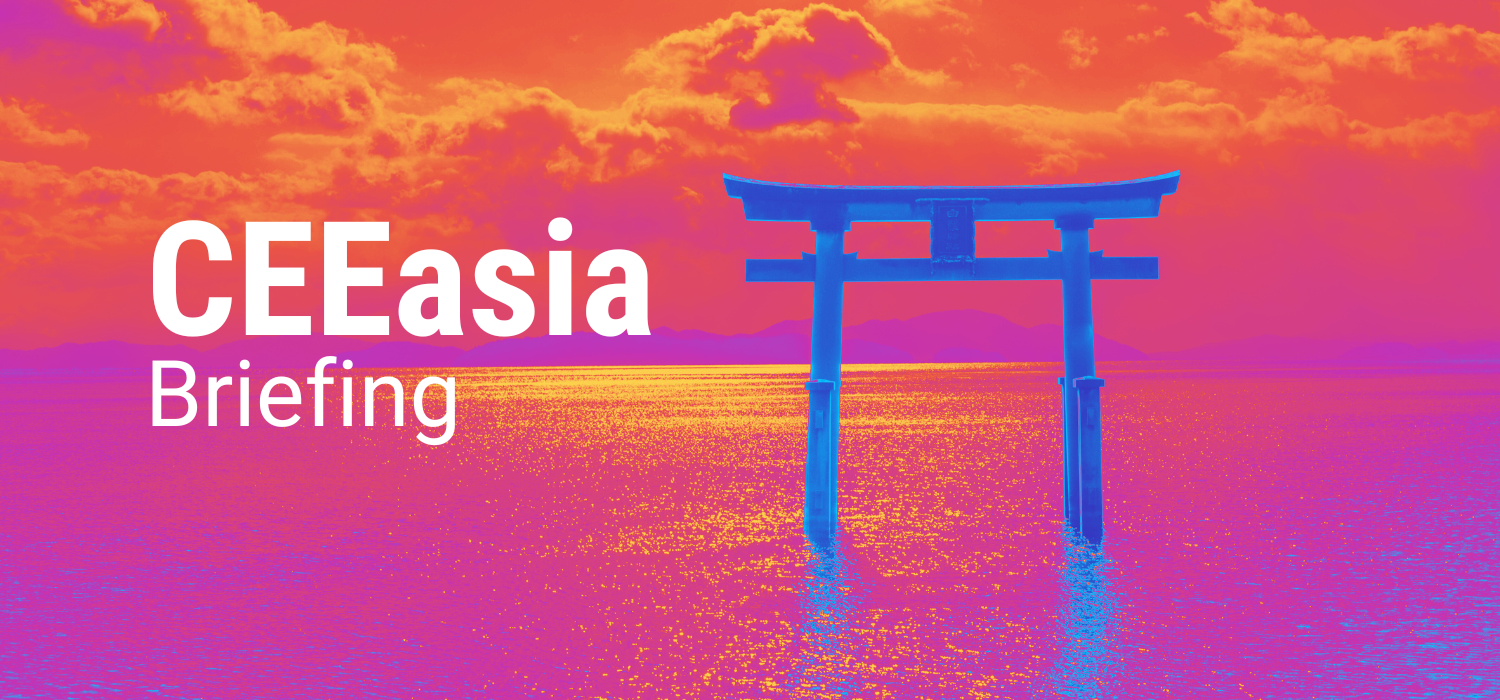The Hungarian government’s “Eastern Opening” foreign policy has not fundamentally changed its EU-oriented economic strategy but Budapest and Beijing increasingly see each other as useful partners for supporting their own narratives of the newly emerging global order. Several Hungary-based think tanks, supported by the Hungarian and Chinese governments, promote the vision of an “Eurasian Era” that is overtaking the “Atlantic Era” of American and Western European dominance.
In recent years, Hungary has garnered international attention for its pro-Beijing policies. During the COVID-19 pandemic, it became one of China’s main European partners for mask and vaccine diplomacy. In 2021, it was the first and (so far) only EU country to approve the use of Chinese-made vaccines. Also in 2021, two years after forcing the US-accredited Central European University to relocate to Vienna, Prime Minister Viktor Orbán’s government announced plans to construct a major campus of China’s Fudan University in Budapest. Of the $1.8 billion cost for the construction of the new campus, $1.5 billionwould have been paid with Chinese loans. However, the government backed down from the plan in 2022 apparently because of widespread protests against the costly campus as well as the unaffordable proposed tuition fees.
Nevertheless, the Hungarian leadership continues to double down on the approval of various Chinese investment projects deemed risky by other EU states. Such projects include the Budapest-Belgrade railway project (to be finished by 2025), with a total cost of €2.3 billion, of which 85% is paid with Chinese loans, which has led the project being described as a potential “debt trap” for Hungary. Huawei remains a strategic partner of the Hungarian government for ongoing 5G projects in the country and plans to extend its research cooperation with Hungarian partners. Recently, a €7.3 billion investment for a major battery plant near the town of Debrecen has raised widespread concerns about the potential negative environmental impact, especially given the lack of a critical and transparent investigation into whether the Chinese investor is sticking to the relevant environmental regulations. Leaked documents obtained in June 2023 by investigative journalists also point to advanced and publically unannounced plans of the Hungarian government to turn the country into the “European hub of Chinese chemicals”, with questions raised regarding the secrecy and potential hazards of the project.
Viktor Orbán’s “Eastern Opening” Foreign Policy Strategy
Hungary’s government continues to see China as an important and reliable partner, setting it apart from the general direction of most EU states that are taking a more cautious approach toward Beijing. Particularly in areas of strategic importance, such as telecommunication and transport infrastructure, Budapest remains open about its favorable views of cooperation with China. This is, in fact, part of the broader “Eastern Opening” foreign policy strategy that the Hungarian government announced in 2010 and which has since served as the referential point for emphasizing cooperation with Eurasian countries outside the EU.
However, ten years on from the announcement of the “Eastern Opening”, Hungary has failed to fundamentally reshape economic relations with the outside world. The EU remains by far more important in terms of trade value than China and other non-EU countries, according to trade data. Yet, the “Eastern Opening” has taken on more of an ideological factor in recent state-promoted narratives of global order. Russia’s full-scale invasion of Ukraine in 2022 reinforced the Hungarian government’s emphasis on maintaining autonomy from Brussels and Washington and seeking to maintain stable relations with Moscow and Beijing. According to government communications and government-backed media outlets, the economic sanctions against Russia are primarily hurting the EU, not Russia, while blame for the war is mainly placed on Washington’s allegedly futile ambitions to maintain what is seen as a unipolar world order. “Decline of the West” and “Rise of the East” narratives remain popular within government-backed discourse. China is often portrayed as a major contributor to a multipolar world order, which will supposedly be more stable and economically beneficial for Hungary, Europe, and the world as a whole.
Synergies of State-Backed Narratives about the New Global Order
Since the announcement of the “Eastern Opening” strategy in 2010, several think tanks have been established in Hungary with the aim of producing knowledge on the country’s relations with its non-Western partners across Eurasia. Most notable is the Eurasia Center (Eurázsia Központ), based at the John von Neumann University of Kecskemét. The University is one of 21 higher education institutions in Hungary funded and managed via “public trust funds” with close links to the Hungarian government. Such institutions were recently banned from participating in EU-funded higher education projects, such as Erasmus+ and Horizon, due to concerns about their lack of independence from the Hungarian state.
The Eurasia Center’s publishing activities, funded by the John von Neumann University’s public trust fund, cover most regions of the Eurasian continent to the east of Hungary: the post-Soviet states, the Middle East, South Asia, Southeast Asia, and East Asia. Several regular publications such as the Eurázsia magazine and Eurázsia Szemle (Eurasia Review) bring together works by experts of various Eurasian regions. Special issues are also published about China, such as a recent English-language issue titled Results and Challenges: 10 Years of China-CEEC Cooperation (2022). This special issue was published to mark the 10th anniversary of the establishment of the “16+1” forum of China-Central and Eastern Europe cooperation, bringing together papers by various authors, mostly from Hungary but also from Serbia, Albania, and Romania. It also features a foreword by China’s ambassador to Hungary, Qin Dayu, and a number of chapters discussing the future prospects of China-CEE cooperation. One chapter by Belgrade-based political scientist Aleksandar Mitić criticizes the “obstructive narratives on China-CEEC cooperation” prevalent in Western media and some CEE countries.
According to the Eurasia Center’s website, its director, Levente Horváth, received his MA in tourism management at Shanghai’s Fudan University and his PhD (2021) at the University of Pécs (Hungary), where his research focus was on Chinese geopolitical thought and the Belt and Road Initiative (BRI). Between 2015 and 2017, Horváth served as the Consul General of Hungary in Shanghai, and in 2019 he became a “Chief Advisor” to the Central Bank of Hungary. Horváth is a frequent participant in various online debates on the newly emerging global order and China’s role in it. He is also an author of various editorials and research papers in the Eurasia Center’s publications. In 2022, he published a monograph with the title A kínai geopolitikai gondolkodás – “Egy övezet, egy út” kínai szemszögből (Chinese Geopolitical Thought – “One Belt, One Road” from a Chinese Perspective).
The narratives put forward by Horváth and other authors in Eurasia Center publications represent the type of knowledge production on China and Asia preferred by the Hungarian government since 2010. They are represented as the rising powers of the 21st century, in contrast to the declining West. The foreword of Horváth’s 2022 monograph informs us that the 21st century heralds the emergence of a new “Eurasian Age” of human history, thus leading to the end of the “Atlantic Age” of the last five centuries. China, a country with a “5,000-year-old culture based on Confucian teachings” (a rather propagandistic statement according to critical historical studies), takes a major role in the shaping of the new global order, it adds. The implication is that Hungary needs to reposition itself in this newly emerging order.
The Budapest-based China-CEE Institute is under the supervision of the Beijing-based Chinese Academy of Social Sciences (CASS) and much of its analysis overlaps with state-promoted narratives of global order. In 2021, it was accused of spying on the CEE region by the Prague-based NGO and think tank Association for International Affairs (AMO). The “Publications” section of the China-CEE Institute website features a large number of “weekly briefings” on the political affairs of CEE countries. It also features English-language translations of Chinese-language works promoting the current grand strategy slogans of the Chinese Communist Party (CCP), such as the “Global Civilization Initiative” (quanqiu wenming changyi 全球文明倡议) and the “Chinese Path to Modernization” (Zhongguoshi xiandaihua 中国式现代化). The China-CEE Institute also has a Youtube channel but with only 82 subscribers (as of July 14th, 2023) it is questionable how wide an audience it has in Hungary.
Conclusions
Based on the output of relevant research institutes in Hungary, there is a synergy between state-backed narratives in Hungary and China with regard to the ongoing transformations of the global order. There are shared notions of what the preferred alternative order should be in comparison to what is seen as a unipolar order dominated by the West in a broader cultural sense and by the United States in the political and military domains. It ought to be remembered that the Hungarian government’s “Eastern Opening” strategy was announced in 2010, three years before Chinese President Xi Jinping inaugurated the BRI. Thus, it would be erroneous to assume that Hungary’s friendliness towards Beijing is primarily a result of the CCP’s successful public diplomacy in the country post-BRI.
The Hungarian government’s negative perception of “West-centric” norms, values, and political trends are evident without direct links to China. These include the ongoing disputes with Brussels over the rule of law and Budapest’s maintenance of cordial relations with Moscow despite its full-scale invasion of Ukraine. Nonetheless, China is an important partner for the state-backed imaginations of a “post-Western” global order in Hungary. Budapest can also count on Beijing’s lack of criticism of its domestic politics and Moscow-friendly stance. From the CCP’s perspective, Hungary is a useful partner inside the EU and NATO, as the country’s leadership subscribes to notions of European “strategic autonomy” and welcomes China’s investments without too much scrutiny.
In the coming years, it is probable that ruling elites of Hungary and the PRC will continue to see each other as useful partners with shared visions of an alternative global order, and the underpinning narratives will be further promoted in Hungary’s state-controlled media and state-backed research institutions.







